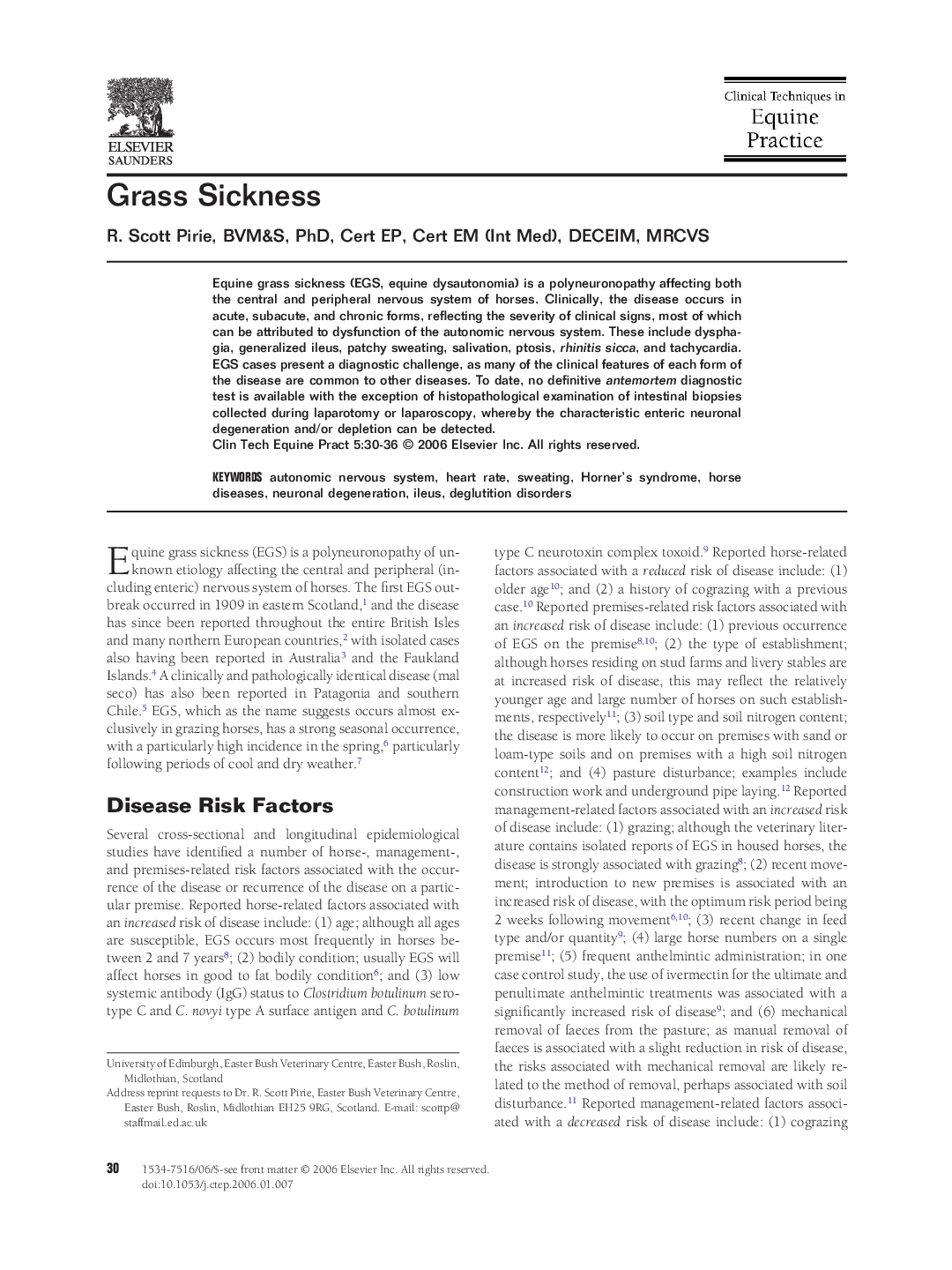| Article ID | Journal | Published Year | Pages | File Type |
|---|---|---|---|---|
| 2393264 | Clinical Techniques in Equine Practice | 2006 | 7 Pages |
Equine grass sickness (EGS, equine dysautonomia) is a polyneuronopathy affecting both the central and peripheral nervous system of horses. Clinically, the disease occurs in acute, subacute, and chronic forms, reflecting the severity of clinical signs, most of which can be attributed to dysfunction of the autonomic nervous system. These include dysphagia, generalized ileus, patchy sweating, salivation, ptosis, rhinitis sicca, and tachycardia. EGS cases present a diagnostic challenge, as many of the clinical features of each form of the disease are common to other diseases. To date, no definitive antemortem diagnostic test is available with the exception of histopathological examination of intestinal biopsies collected during laparotomy or laparoscopy, whereby the characteristic enteric neuronal degeneration and/or depletion can be detected.
